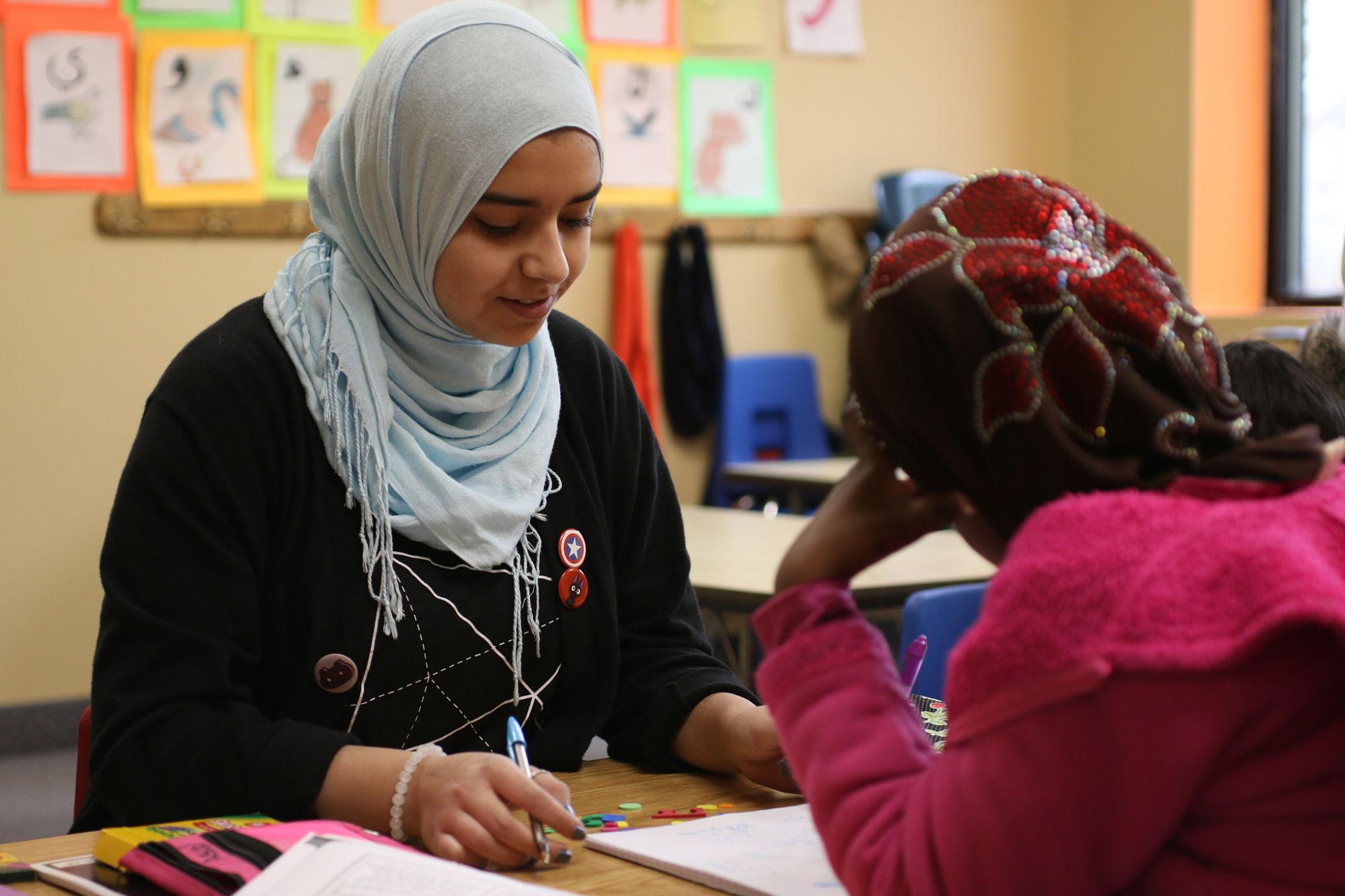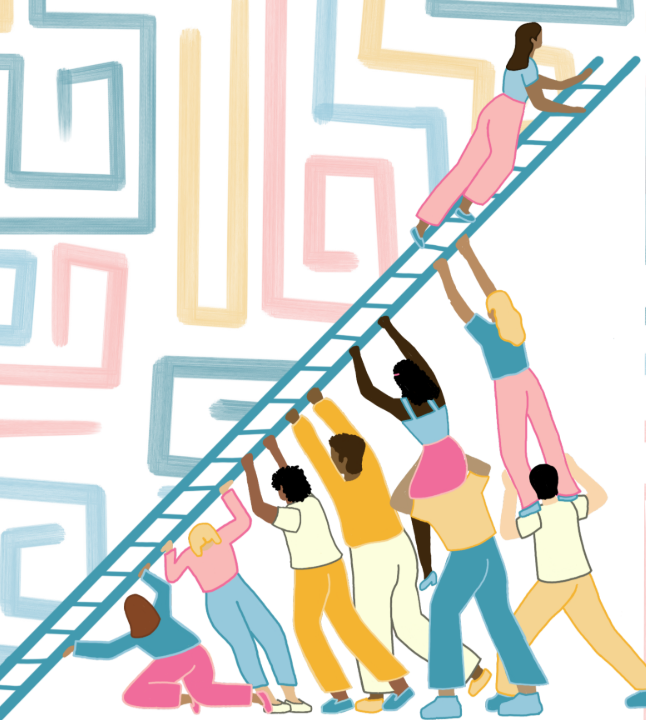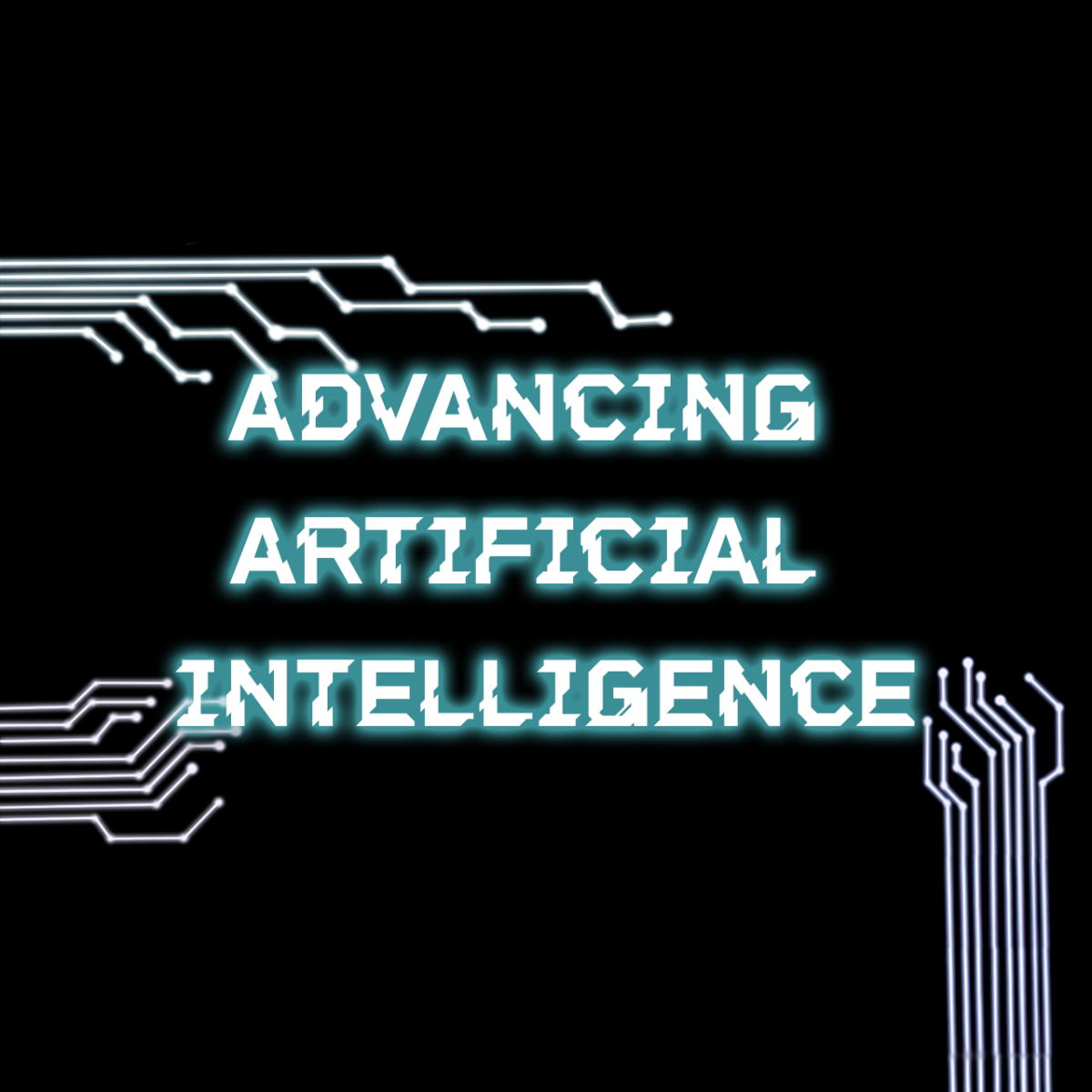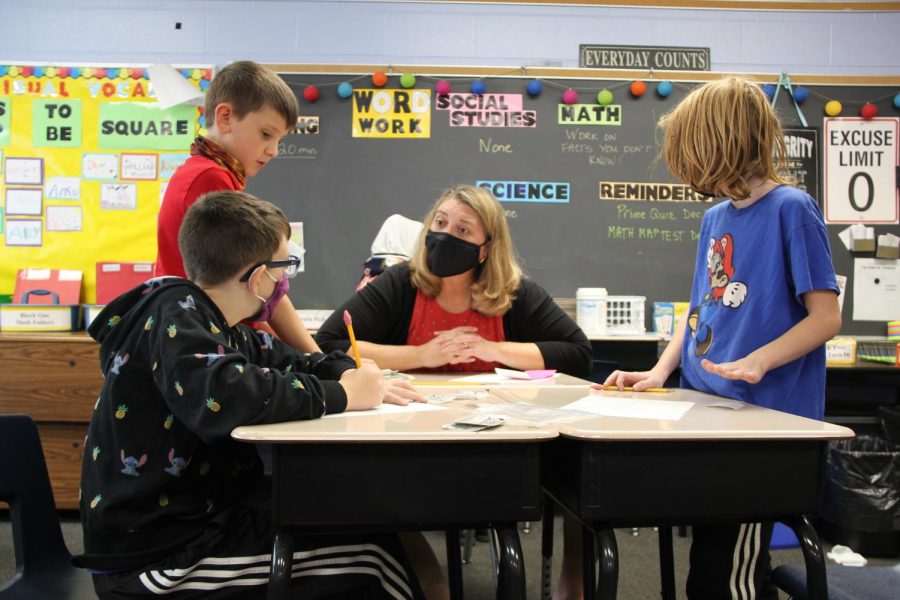By Maddie Weikel | Photography by Maya Wells
With the end of her senior year swiftly approaching, it was time for East student Amena Sheikh to choose a location for her graduation party, and the family thought they had found the ideal spot. On the website, it was perfect—the computer screen flashed vibrant trees and plenty of green space so the adults and graduates could mingle, a playground and basketball court so the kids could play and a beautiful inside space in case of rain.
Eager to schedule the party, Sheikh’s parents rolled up to the park for what was intended to be a final inspection, but it was difficult to get a good look at the lush greenery when parents were ushering their children to different areas and the feeling of penetrating stares was clouding their judgments.
“My dad didn’t feel comfortable in the area because it was so unfamiliar, and a majority of the people who my parents passed while driving didn’t seem too happy to see them,” Sheikh says. “[Onlookers] returned with stares. My dad says it could just be him stereotyping, but he felt unwelcome and unwanted, and it just gives you a kind of stiff feeling. No one has to trade any words—you just know.”
Despite the seemingly flawless portrayal on the park’s website, Sheikh decided to celebrate her graduation with friends and family in her own West Chester community, which both she and her mother, Khitam Abuzeyada, view as accepting and generally open-minded. Nationally, however, the numbers don’t exactly line up.
Not only did Americans on average rate Muslims less favorably than any other world religion in a 2014 Pew study, but YouGov also found in 2015 that 60 percent of Americans surveyed either do not want to or are indifferent about learning more about Islam.
In the midst of anti-Muslim sentiment from 2016 presidential candidates and from the international media’s coverage of ISIS attacks, the information from which the average American draws when making everyday judgments about Muslims is often negative and skewed, according to Boston University Professor of Sociology of Religion Nancy Ammerman. From uncomfortable looks in the grocery store to seeing people pull their children close when she and other women wearing hijab pass by on the street, Sheikh has felt the twangs of misguided prejudice that she knows can be clarified with even one positive interaction.
“The hardest [form of discrimination] was being able to find a job,” Sheikh says. “I’ve sent out a lot of resumes three separate times to places that I would think would accept a lot of people, but for some reason they turned down mine. I’m not even sure why, maybe because of my name, but I have a lot of qualifications that would work for [entry-level] jobs. I work at Lush now, but I feel like they accepted me because their ethics is they try to get a lot of diverse workers.”
Sheikh only suspects that her religion was a factor in her unsuccessful job search, but the Metropolis British Columbia (MBC) Centre of Excellence for Research on Immigration and Diversity found in 2011 that English-speaking employers in Montreal, Toronto and Vancouver are 40 percent more likely to respond positively to a job applicant with an English-sounding name than an applicant with an ethnic name, even if both candidates have identical qualifications recorded on their resumes.
Those employers most likely do not express explicit signs of discrimination, but, according to the Implicit Project, through which more than two million Americans have taken an Implicit Association Test (IAT) that most accurately measures subconscious bias, most white Americans have some sort of bias against at least one group that is not white. Whether or not these implicit biases are recognized is unclear, but the ramifications are real.
For the people like the majority of scorers on the IAT who find themselves resting in the gray area between absolute support for and extreme hate of Muslim Americans, there is little motivation to break their normal routines to seek out reliable information, but their misinformed subconsciouses make inaccurate judgments whether or not their personal connections to the issue is causing any explicit problems.
“The relative distance between the Muslim experience and the traditional American religious experience is really the largest barrier there is,” Ammerman tells Spark. “[For this reason], it’s easy for people to be mislead about Muslims because we call on whatever knowledge and experience we already have, so if we have a picture about what an experience is, we will draw an analogy.”
It is not unreasonable, according to Ammerman, for people to prioritize other aspects of their lives over researching American-Muslim culture, especially if they feel apathetic toward or disconnected from the Muslim community. In West Chester, however, residents live in the same township as the Islamic Center of Greater Cincinnati (ICGC), and both Sheikh and Abuzeyada feel safe and respected in the community because people at least see Muslims at “normal” places like grocery stores, gas stations and schools.
But beyond the limits of West Chester, Sheikh and her family are concerned with the incorrect correlation of Muslims with terrorism that runs rampant. In efforts to disassociate ISIS with the religion of Islam, many Muslims refer to the group as “Daesh,” which is connected to an Arabic word that means, “one who crushes something underfoot.” Abuzeyada, as well as ICGC educational speaker Shabana Ahmed and Sheikh, explain that a central teaching in Islam states that killing one person is equivalent to killing the whole world in the eyes of Allah, which makes the relentless association of Islam with terrorism extremely painful and disheartening.
“For us as Muslims, killing is major sin no matter what, even if it’s an ant,” Abuzeyada says. “If it does harm, you have a reason, but if it doesn’t harm you, you can just avoid it. So when it comes to killing a person, it’s something huge. For us, after you die, you go to heaven or hell, but if you ever kill a person, you would never, ever go to heaven.”
According to a New York Times analysis, since 2014, ISIS has carried out or inspired at least 29 deadly assaults targeting Westerners around the world, killing more than 650 people, the most recent of which being the attacks in Belgium and Turkey in March. Because 65 percent of 368 East students surveyed have limited or no knowledge about Islam, the group is more prone to believing stereotypes popularized through incomplete media coverage. With every shooting, bombing or violent act that makes the news, Sheikh says she and ICGC friends pray that the perpetrator is not Muslim because there is always a “microscope” watching the community’s every move.
“Everything has its own good and bad, but when a tiny, small thing happens, it affects us like a bad apple affects the whole thing,” Abuzeyada says. “We all get affected. Every single Muslim gets affected. I feel like people judge you before they talk to you just by your look, and they don’t need to know you and they don’t want to know you. They just know whatever they know from the media, and they label you as the bad apple.”
Popularized by John McConahay, the term “modern racism” refers to the perspective that although racism is wrong, minority groups are making “unfair demands” when calling for justice or bringing light to systemic or implicit biases, according to Social Psychology Network. City University of New York Graduate Center Distinguished Professor of Social Psychology Michelle Fine tells Spark that because these dominant forms of subtle discrimination make it more difficult for people who are suspect to the claims of discrimination to recognize it for themselves, telling victimized groups that they’re exaggerating their conditions has historically been a way for dominant groups to “deflect guilt and responsibility.” The most logical and most effective strategy to combat systemic biases against Muslim Americans is therefore interacting with peers and colleagues who are Muslim in order to “put a face to the group.”
“I don’t think people who are in pain are going to seek out ways to humanize groups that they have been taught are responsible for their pain,” Fine says. “I think that’s a lot to ask, but we could normalize the interest in humanizing each other and challenging the stereotypes.”
Holding the third pillar of Islam, zakat, close to their hearts, Sheikh and Abuzeyada are both active in the community, and the importance of volunteer work and charity that is emphasized in the pillar is shared among all members of ICGC. As a leader of one of four youth groups at ICGC, Abuzeyada organizes volunteer events like Hands Against Hunger trips, masjid cleanups and making lunches for the Cincinnati homeless population at least once a month from August to May. Sheikh currently takes part in a program called Success in School and tutors children in the community who recently came to America as refugees, and she believes that any act of service no matter how small not only strengthens the community but also remedies inaccurate perceptions of Muslims.
“It’s not like [the Muslim community] is sheltered. We like to reach out,” Abuzeyada says. “We’re trying [to connect] from our side so much. We’re trying so hard, and we’re enjoying it and we love it, but still we’re small. We’re not big, so it’s hard for our voice to be heard.”
Because of what the psychology world popularly claims to be a “fundamental ingroup bias,” humans naturally have an affinity for people who are “like” themselves, or members of their ingroup. While some disagree, Ohio State University Department of Psychology Chair Richard Petty describes the evolutionarily natural bias against outgroups as “just a reaction that is negative compared to your own group.” He says that studies have shown that a group of people wearing green shirts have this same comparatively negative reaction when they first see a person who is instead wearing a red shirt, but the bias dissipates as soon as that person wears green.
While the solution is not to have everybody “put on the green shirt” and melt out of all diversity, the inherent reaction that the human subconscious has to unfamiliarity is a considerable and often invisible barrier to reducing discrimination against any outgroup. And Petty says that the added factor of fear when considering discriminatory judgments against Muslims magnifies the issue.
“Even if your deliberative attitude [about Muslims] is quite positive, odds are that you have an automatic bias,” Petty says. “Now you’ve got a case where your deliberative attitudes are in conflict with the automatic things, so even if you get to the point where your conscious, deliberative brain doesn’t want to be biased, your more primitive, automatic side goes, ‘Wait a minute, they’re different. Should I be afraid?’”
This automatic bias further complicates the expectation that people will take initiative to properly educate themselves about Muslim culture, but Petty says that because this bias “colors judgments” of all outgroups, he has “total confidence that people will change.”
For the time being, Sheikh says that, in her experience, many of her peers are hesitant to ask questions about Islam and specifically about her hijab. With a total of four people initiating conversations with her about Islam in all four years of high school, Sheikh says that the level of dialogue about different cultures and religions is not strong enough in the community for people to see a safe and accurate picture of Islam.
With the typical American maxim that sex, politics and religion are private matters, Ammerman says that while this perspective is not atypical, it is ironic because of how integral religion has become in people’s identities. Sheikh says that even though she wishes people were more comfortable addressing topics about religion and culture, she understands that discomfort because she doesn’t always know how to frame a question to a Sikh man who wears a turban. Regardless, Sheikh says that she is always pleasantly surprised by the “flood of questions” she receives when she herself initiates a conversation, hoping that people will share what they learn with friends and family.
“There’s a real fear that if we do ask questions, either we’ll look stupid or we’ll cause conflict,” Ammerman says. “There is a pretty strong sense in American culture that religion is something around which people fight—It causes riffs, it causes differences, it causes people not to be friends anymore—and people don’t want to risk that. The degree to which that’s the case can certainly be argued either way, but people think that they don’t want to intrude and they don’t want to risk exposing the possibility that there might be some irreconcilable difference.”
For the people on the extreme end of the spectrum, it is not productive for Sheikh to try to change their perceptions of Islam. She says that people in the West Chester community have never explicitly acted or spoken hatefully to her face, but it’s a different scene on social media. She says that her general defense mechanism when confronted with violence or hate on Twitter is to educate. Because it may not be that person’s fault that they are uneducated about Islam, Sheikh says that bias is not a concrete or intentional character flaw.
“Whenever I tweet about being proud to be Muslim, there’s always someone who says, ‘Well you’re part of a religion of killers,’” Sheikh says. “It is offensive, but I’d just be adding to the fire if I tried to argue. I give facts and support what I say with accurate things so I can educate the person rather than respond with anger because violence and anger are never the answer.”
While the Millennial generation is sometimes criticized for being deceptively tolerant of outgroups and for having a post-racial society mindset, both Fine and Sheikh say that they have noticed a rise in solidarity among groups who are Muslim and groups who are not Muslim. From groups on college campuses uniting Jewish and Palestinian students to Muslim-American and LGBT momentum in addition to BlackLivesMatter groups collaborating with Muslim-American students, Fine says the level of interaction is helping to clarify the steps that people could take to reduce prejudices that they in the past might not have recognized within themselves.
“I don’t believe it’s natural [to gravitate toward people who are like you],” Fine says. “It is so socially and politically overdetermined what differences we retreat from, which differences we integrate, and which differences, like someone being an artist, we find interesting.”
While the struggle to separate implicit bias from automatic reactions and to measure the necessary amount of societal change persists, the country cannot make any progress if people refuse to listen to new information, even if it conflicts with the rhetoric they have already heard. Whether a natural bias, developed prejudice or both, the first step in remedying misconceptions and easing tensions is meaningful and sincere dialogue, and Sheikh is optimistic for change, especially with the momentum of support that has risen from the negative backlash from presidential candidates.
“There is a movement of people who are becoming more and more supportive of Muslims, but there are two sides like tug of war,” Sheikh says. “We just need a final push. I don’t know if there’s a final goal to reach, but right now we just want everyone to be accepted and seen in the same light so I have just as much of a chance as someone not wearing a scarf to get an entry-level job or get accepted to college.”








